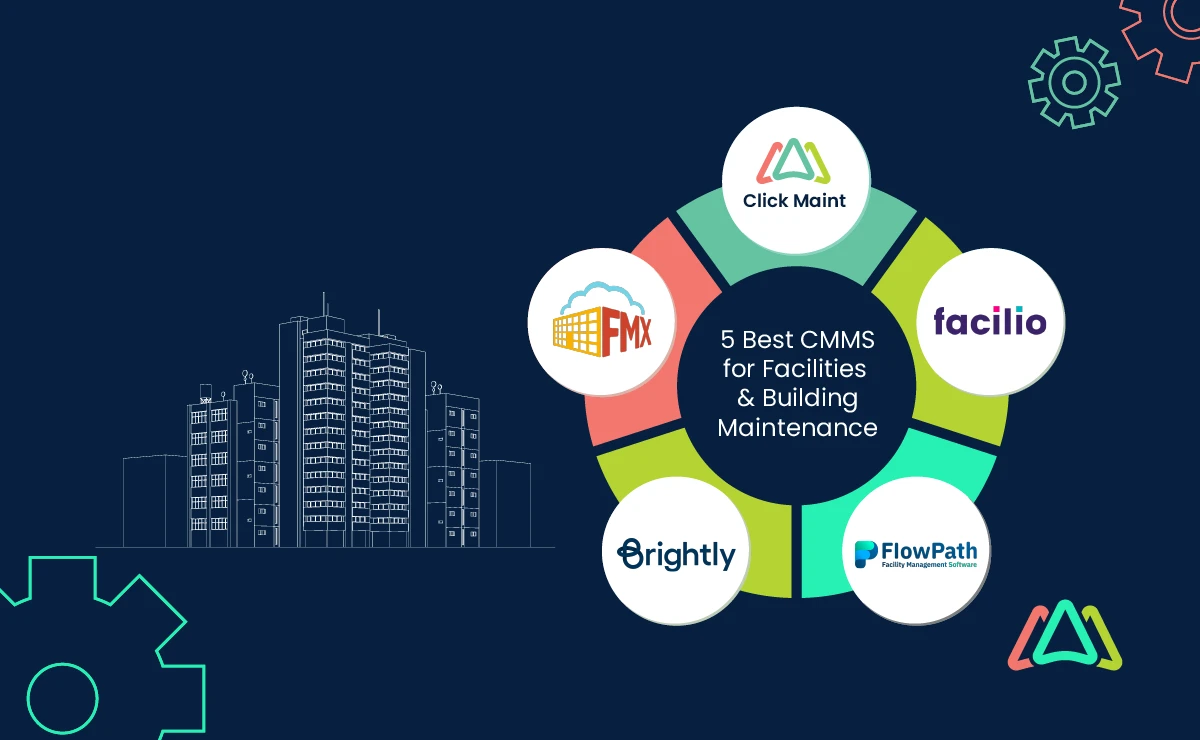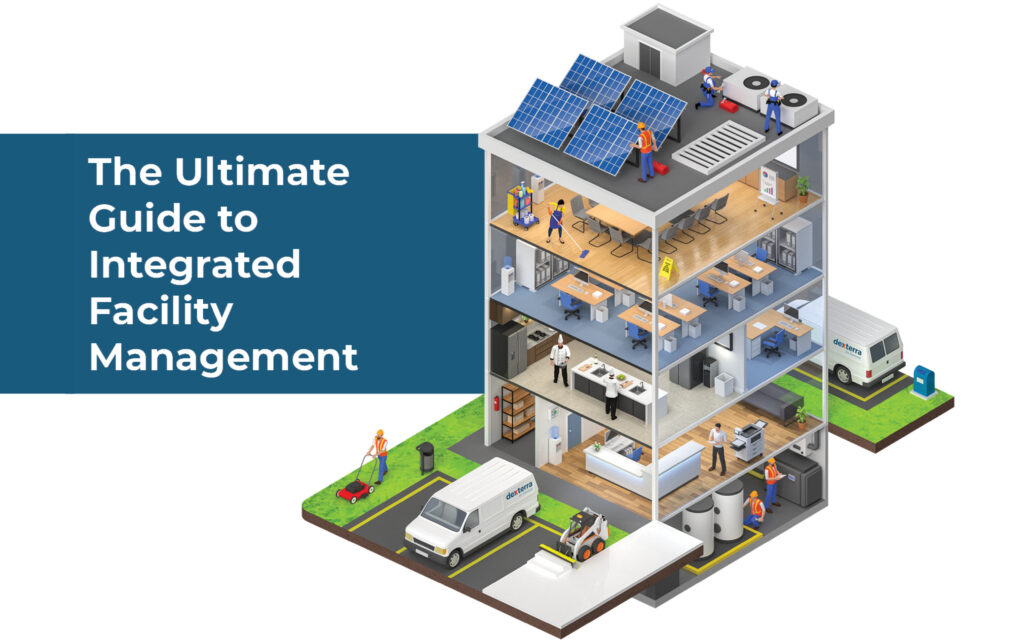Why Total Facility Management Is Crucial for Service Success
Total Facility Management (TFM) serves as a keystone for business success by balancing diverse operational aspects such as upkeep, room use, and precaution. This integration not just improves performance yet also aligns facility management with overarching business objectives. As organizations browse an affordable landscape, recognizing the complex advantages of TFM can be essential in driving price performance and improving employee performance. However, the implications of adopting TFM prolong far past immediate functional gains, elevating vital inquiries concerning its long-lasting impact on organizational resilience and competition - Total Facility Management. What lies below this important structure?
Comprehending Total Facility Management
Total Facility Management (TFM) encompasses a comprehensive strategy to handling a company's structures and connected services to make sure optimal capability, safety, and effectiveness. TFM incorporates different techniques, consisting of maintenance, procedures, area management, and security protocols, to produce a cohesive structure that supports an organization's core objectives.
At its core, TFM intends to enhance the procedures included in facility management, improving and decreasing redundancies service distribution. This technique entails the control of tasks associated with home management, such as repair work, cleansing, and energy management, to cultivate a productive environment for stakeholders and workers alike. TFM additionally stresses the significance of executing finest methods and ingenious technologies to improve service high quality and lower functional costs.
By straightening facility management tasks with business objectives, TFM improves overall efficiency while ensuring compliance with health and wellness, safety and security, and ecological policies. Hence, TFM serves not just as a logistical function yet additionally as a strategic asset, adding to a company's long-term sustainability and development.
Key Benefits of TFM
Leveraging a comprehensive method, companies that execute Total Facility Management (TFM) unlock a myriad of advantages that add to total service success. Among the primary advantages of TFM is the enhancement of operational effectiveness. By combining facility solutions under a unified management structure, companies can simplify processes, minimize redundancies, and improve interaction throughout departments.
Additionally, TFM advertises a proactive upkeep technique, which reduces downtime and extends the life-span of facilitiess and equipment (Total Facility Management). This aggressive technique not only boosts performance however also promotes a more secure working setting, inevitably resulting in greater employee satisfaction and retention prices
Furthermore, TFM helps with much better source appropriation by supplying insights right into facility efficiency metrics. Organizations can recognize locations for enhancement, allowing them to make educated choices that align with their tactical goals.
TFM and Expense Efficiency
Attaining price effectiveness is a basic goal for companies, and Total Facility Management (TFM) plays a crucial function in this endeavor - Total Facility Management. By incorporating numerous facility services under a single management framework, TFM allows organizations to improve procedures and reduce redundancies. This holistic technique brings about considerable expense savings, as it removes the requirement for numerous vendors and streamlines purchase processes
Furthermore, TFM fosters positive upkeep methods, which minimize the danger of expensive repair work and downtime. By focusing on preventative steps, organizations can expand the life-span of their possessions and minimize unanticipated expenditures. In addition, TFM integrates power management methods, which can significantly cut utility costs via reliable resource application.
The centralization of data and analytics within TFM enables organizations to make educated financial decisions. By recognizing trends and areas for enhancement, TFM enables tailored strategies that further boost price management. The scalability of TFM services makes sure that as organizations grow, their facility management methods stay efficient and lined up with financial goals.
Enhancing Staff Member Performance
A well-managed facility can substantially improve staff member performance by producing a helpful job atmosphere. Efficient Total Facility Management (TFM) makes sure that all aspects of the office-- from illumination and temperature to tidiness and security-- are maximized. When employees run in a room that is well-kept and comfortable, they are more probable to focus on their jobs, resulting in higher outcome and task fulfillment.
In addition, TFM can improve cooperation through the critical style of common locations, encouraging synergy and innovation. By buying the best sources and innovation, companies can facilitate seamless interaction and simplify process, even more boosting performance. Normal maintenance and punctual feedbacks to facility issues protect against interruptions that could or else impede efficiency.
In addition, a healthy and balanced and risk-free job environment, sustained by TFM practices, decreases absenteeism and promotes health, directly correlating with raised productivity levels. Eventually, focusing on facility management is an investment not only in physical possessions however likewise in the labor force itself. By promoting an atmosphere that supports employee requirements and preferences, organizations can grow a more involved and efficient labor force, driving total success and affordable benefit.

Future Trends in TFM
Embracing technological developments is set to improve the landscape of Total Facility Management (TFM) in the coming years. As the need for performance and sustainability increases, TFM will significantly take on smart building technologies, incorporating Internet of Points (IoT) gadgets to manage and monitor facility procedures in real-time. This shift will make it possible for aggressive maintenance, significantly improving and decreasing functional expenses solution distribution.

Sustainability remains an essential focus, with TFM experts expected to prioritize eco-friendly methods. This consists of utilizing renewable resource sources and enhancing waste management systems to minimize the carbon impact of facilitiess.
Remote management abilities will certainly likewise be increased, allowing facility managers to find supervise operations from essentially anywhere. This flexibility will come to be vital as organizations adapt to hybrid work models. In recap, the future of TFM is poised for makeover through modern technology, sustainability, and enhanced operational approaches, making certain services continue to be competitive in an advancing landscape.
Conclusion
To conclude, Total Facility Management is a critical component for achieving business success. By incorporating various operational features, TFM improves efficiency and straightens facility management with business objectives. The resulting expense savings, improved staff member performance, and safer work atmospheres add considerably to overall performance. As services progressively adopt cutting-edge innovations and lasting practices, the relevance of TFM will certainly remain to grow, making sure long-lasting functional efficiency and competition in a developing industry.
 Jonathan Taylor Thomas Then & Now!
Jonathan Taylor Thomas Then & Now! Tony Danza Then & Now!
Tony Danza Then & Now! Judd Nelson Then & Now!
Judd Nelson Then & Now! Molly Ringwald Then & Now!
Molly Ringwald Then & Now! Tonya Harding Then & Now!
Tonya Harding Then & Now!